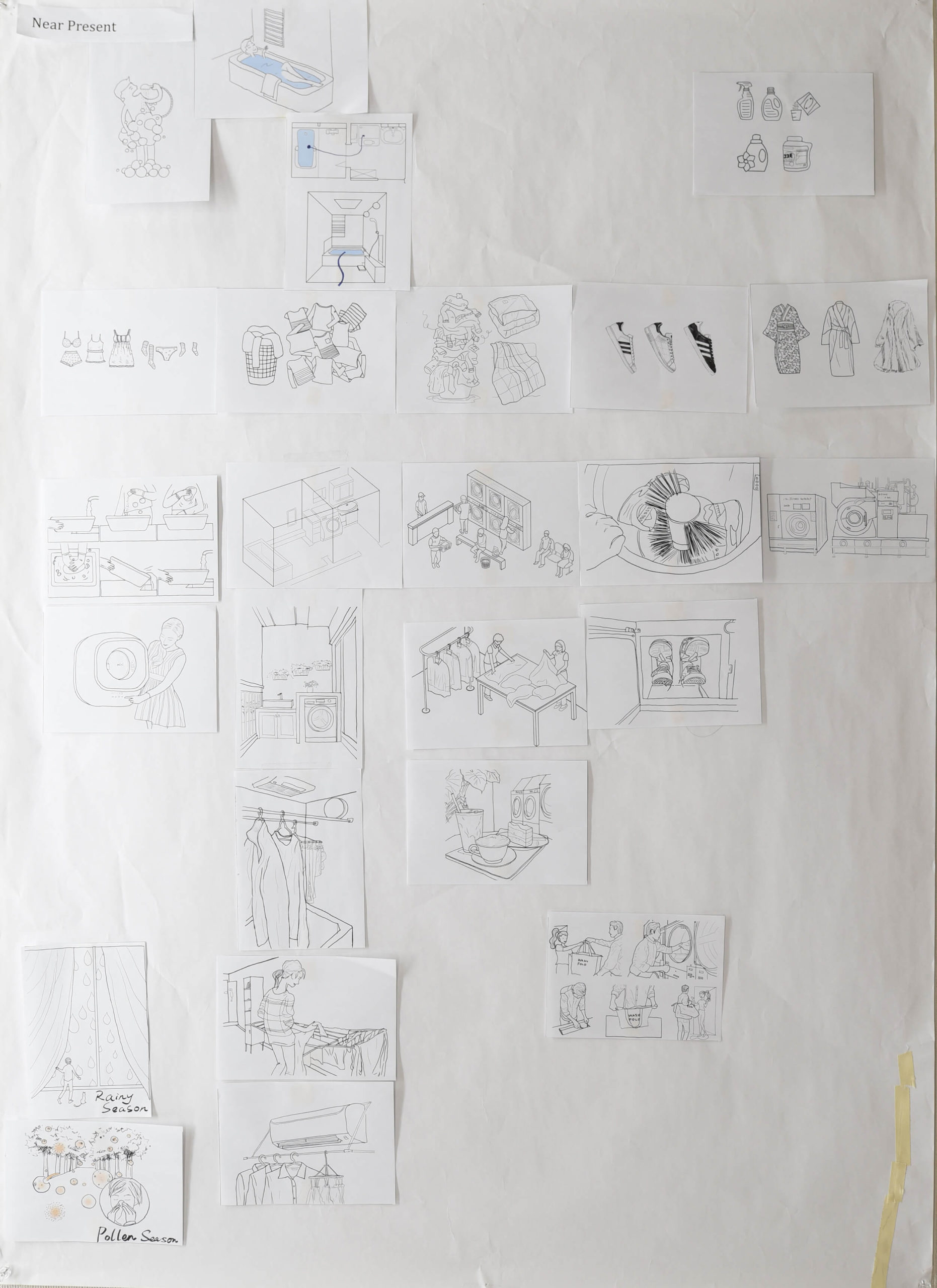The importance of laundry as a part of Japanese everyday life has steadily declined, mainly due to the reduction of the time, space, and tools required to perform this household task. This development has not only been caused by technical progress, such as the introduction of electrical washing machines and dryers, but also by demographic and societal developments, in particular the changing role of women in Japanese society. Even though the appearance of coin-operated launderettes in the post-war years, combined sometimes with public baths, introduced a new form of communality, overall the collective aspect of doing laundry chores has decreased drastically from the pre-modern period to the present. Today washing activity is split between a variety of laundry settings and forms, ranging—dependent on the residential environments that coexist in contemporary Japanese society—from minimal washing units, to the use of balconies or bathroom dehumidifiers for drying, to communal spaces.
Laundry









Project
Students
Teacher
Class
Type
Year
Laundry
Akinori HoriAmalianisa KushartantiMalte JungeXiangjun Liu
Laurent Stalder
Thing of Modernity – Mapping the Micro-geography of Everyday Environments
–
2020 4Q